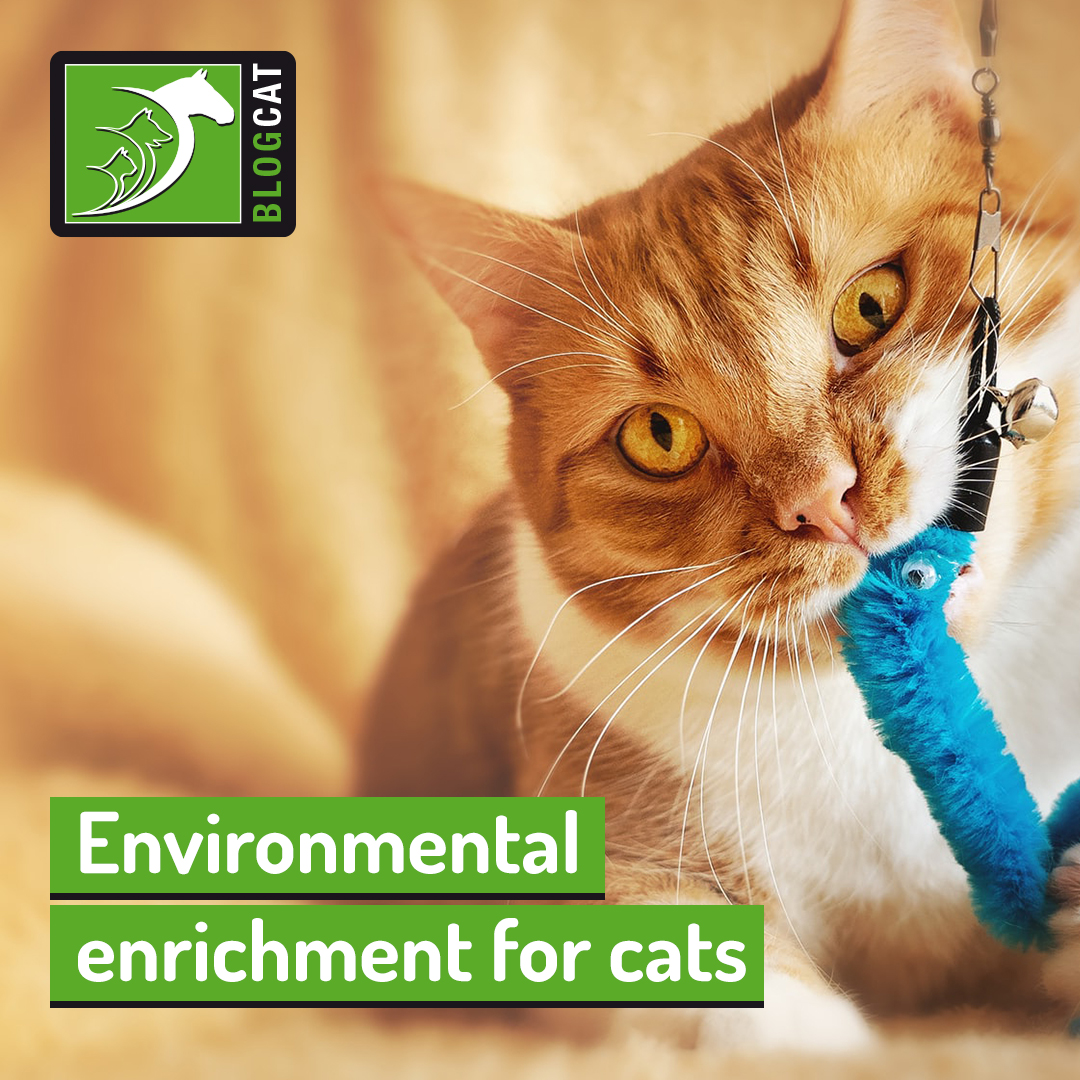
Environmental enrichment for cats

Last Sunday was International Cat Day, a day created to celebrate our feline friends.
At The Pet Professionals, we believe all days should be 'cat days', so we're keeping the celebration going, and we're going to share with you our three top tips to help you enrich your cat's life.
#1 - Meeting basic needs
If you are the proud owner of a purring friend, this is where to start.
Make sure that your cat has access to all the resources that they require to satisfy their most basic needs, such as eating, drinking, sleeping and going to the toilet.
Here is some useful information that you might not be yet aware of. Did you know that
- Eating and drinking bowls should not be near each other
- Cats tend to prefer wide and shallow dishes
- Having multiple sources of water around the house is helpful to encourage drinking
- The litter tray should be away from the eating, drinking and resting areas
- If you have more than one cat, it is recommended to have one litter tray per cat plus an additional one
- Cats tend to prefer open trays and unscented litter
- Some cats will not use the litter tray if it's dirty, and will find elsewhere to eliminate
Basic needs - not so basic that we should ignore them!
#2 - Providing opportunities to display natural behaviour
For cats to be happy, they need to be able to display their natural behaviour. This includes:
Hunting
If your cat does not have outdoor access, it's very important to provide them with hunting opportunities at home. Fortunately, there are several toys that you can purchase or make to mimic hunting.
Also, playing is great for physical and mental stimulation and can be a bonding experience if using interactive toys. However, keep in mind to never play with your cats with your hands and fingers as this could direct predatory behaviour towards you or other family members.
Even though they're likely to have a favourite, rotate your cat's toys every once in a while, to keep things fun!
Scratching
Please do not try to discourage your cat's scratching behaviour, even if they're trying to create a 'new texture' for your furniture. Scratching is something that comes naturally to cats and that allows them to communicate and keep their nails sharp.
If your cat is scratching on something that they shouldn't, such as the couch or curtains, for example, provide them with an appropriate surface to scratch on and make sure to place it somewhere that your cat will use it. Sometimes, moving the cat scratching post from the corner of the room to near a problem area will prevent your cat from scratching where you don't want them to.
Scouting
In the wild, cats are mighty predators, and a key component of the prowl is patient observation. High places, such as shelves or the top of the refrigerator, are usually greatly appreciated by cats, as it provides them access to a large visual field and a position of advantage. Providing your cat with vertical territory allows them to feel safe and contented.
Hiding
However, as great as hunting as cats are, cats can also be a prey target, making it twice as important to be observant, and to have a place to retreat to if needed. Having hiding places around the house can be a great source of comfort and safety.
If your cat is hiding, try to avoid disturbing them and let them come out on their own when they feel ready.
#3 - Making your cat's space their own
Every cat is different, and each has their own personality and quirks. Make sure to make adjustments as needed to best suit your cat's character so that they can lead happy lives.
Would you like to know more about cats? Check our Feline Courses:
Feline courses
Published: 09 Aug 2021
Read the previous article: Check your horse's hooves regularly

